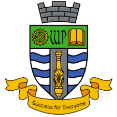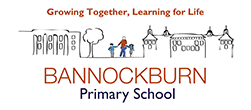Creative Arts
Creative Arts Department Curriculum Map
Creative Arts
Head of Department: Ms Coombs- Roberts at: LCoombs@woolwichpoly.co.uk
The creative Arts Department of Woolwich polytechnic boys schools is dedicated to nurturing not only critical thinking and visual literacy through an engaging, supportive, and collaborative studio environment. Our team are committed to nurturing the wellbeing of our pupils through achievement, resilience, and a passion for creating. Our curriculum is holistic in our approach and is designed with the whole child in mind, to foster independence through differentiated and self-directed learning. We develop a lifelong aptitude and desire to learn, explore, create, and invent. Our outcomes engage pupils to take risks, discover and create their own take on the world.
Introducing students to an increasingly diverse selection of art and artists fosters opportunity, equity, and inclusivity. This allows students to see themselves in a variety of representations, inspires them to share their unique voices, and become global citizens.
Key Stage 3
We have developed the Key Stage 3 course around the skills required to be a successful artist. The curriculum allows pupils to develop their skills in research, both visually and written and visual language skills. We offer a range of 2d and 3d endorsements throughout the Key stage, from drawing, painting, photography, printing, textiles, clay and sculpture. We develop and nurture pupil’s passion for art, through fun, accessible and interesting project themes.
We highly recommend visits to art galleries especially Tate Britain or modern, the Saatchi gallery or the National gallery. We encourage pupils to look on Pinterest if they would like inspiration or how to sheets for drawing/ painting or creative tasks. A multitude of art tutorial videos are available on Youtube.
Key Stage 4
Eduqas Qualification Art and Design GCSE
Eduqas GCSE Fine art
During Key stage 4, pupils at Woolwich Polytechnic are working more independently in Art. A typical lesson will see each pupil working on his own particular project, with the teacher discussing work and ideas with him. Projects, which involve processes as diverse as ceramics, painting, textiles, digital manipulation, printmaking and mixed media, will be happening in the art room at the same time. Pupils' work is informed by their observed research as well as their critical studies of a range of artists and cultures. It is our aim to develop the individual potential, of all our students in Art, to the fullest extent, as well as to ensure our pupils' enthusiasm for Art is nurtured and developed.
Eduqas GCSE Graphics
This course sees pupils develop their KS3 art skills into a more specialised graphic design pathway, utilising these for a number of graphic design briefs. These range from typography to book cover designs. The work which is created physically using an array of traditional art materials and techniques is often digitised to then allow students the experience and skills required for a range of graphic design purposes.
Eduqas GCSE Photography
This course sees pupils greatly develop any photographic experience from KS3 through a series of solely dedicated photographic projects over the two years. The use of digital SLR cameras and image editing software across a number of computer and phone based platforms allows students to gain technical and aesthetical skills in creating photographic images. A broad range of photographers and how photographic images are used to communicate are explored to benefit the pupils own understanding and photographic projects.
All specifications are assessed in the same manner as set out below:
Assessment
60% coursework:
Compromises of 2 units and 2 final outcomes that have a clear connection to their sketchbooks.
40% exam unit:
This is an externally set theme that concludes in a 10-hour timed test that pupils create a final outcome for that has clear connections to their preparatory work.
Assessment of both these components creates the final overall mark.
SUPPORT MATERIALS & USEFUL LINKS
Art Websites
Gallery Websites
- Tate Museum
- V&A
- MoMA
- British Library
- Saatchi gallery
- Barbican
- Design museum
- Fashion era costume history
- National Gallery
Try searching for: BBC, Guardian newspaper, Times newspaper, Independent newspaper.
Photography Websites:
Department Information
Any specialist equipment required?
A range of tonal pencils and a range of paintbrushes.
Enrichment opportunities
At least 1 day of Fieldwork – a mix of physical and human
Clubs or Interventions
We hold clubs weekly depending on the Year group; we also hold interventions on Saturdays and during the holidays.
Future careers/uni courses.
Art therapist; Designer; Teacher; Archaeologist; Architect; Art critic/journalist; Art historian; Conservationist; Illustrator/comic book artist; Ceramicist; Curator; Photographer; Fashion merchandiser; Animator; Gallery assistant/owner; Goldsmith; Landscape designer; Makeup artist; Fine artist; Tattoo artist; Set Designer; Typographer; Sculptor
Social, Moral, Social, Cultural (SMSC) and British Values
The art course lends itself to a wide range of Spiritual, Moral, Cultural and Social studies. Students will analyse, engage with and question their own and others work, identify how beliefs, values and meanings are expressed and shared. Students are encouraged to express themselves through their art, which is supported by strong research into the wider world around them. This is reinforced by trips and outings to museums, galleries that are strongly linked to projects. The department undertakes a number of extra-curricular activities that enhance the students’ experience of the fine arts and its context in the world.
Spiritual development in art:
The Art and design course is dependent on the students’ ability to enquire and communicate, their ideas, meanings and feelings. Students will investigate visual, tactile and other sensory qualities of their own and others work. We encourage independent thinking that will enable students to develop their ideas and intentions and express these in an appropriate manner.
Moral development in art:
Throughout the course students are encouraged to look at work that will often pose a moral question. The student’s outcomes are supported with a rationale or a meaning that will often convey a message.
Social development in art
Student’s work is celebrated throughout the school and displayed in many areas. Regular group and pair work in art lessons, supporting one another in a variety of projects in order to enhance team-working skills. Eg. Large-scale work and community projects- work created for a Primary school. Group presentations and critiques in year 10, 11 and sixth form, encouraging communication and peer feedback.
Cultural development in art
Throughout the units of work explored students will develop their knowledge and understanding of artist’s ideas and concepts identifying how meanings are conveyed. Students will be exposed to a wide variety of cultures, beliefs and religions. Through their investigations they will research and explore the religious and non-religious beliefs adopted by a variety of cultures from around the world.
-
Students are taught to give and receive positive criticism in order to inform ideas and decisions about their work.
-
Student discussion of a range of artists and artwork, encouraging and developing communication skills.
-
Students are required to research a wide range of artists and link their findings to their own work.
-
Trips to London and local galleries are used to help influence and link to personal projects.
-
Students are encouraged to experiment with a variety of traditional and non-traditional art materials and processes.





